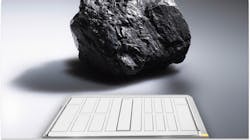India’s EAM to Build $650M Graphite Anode Manufacturing Facility in North Carolina
India’s battery materials company, Epsilon Advanced Materials (EAM), a wholly owned subsidiary of Epsilon Carbon Pvt. Ltd., and North Carolina Governor Roy Cooper have announced plans to build a $650 million graphite anode manufacturing facility in Brunswick County, North Carolina.
The 1.5 million sq ft facility to be introduced in 2024 is expected to create about 500 new jobs for the Greater Wilmington area. It will commence manufacturing in 2026 and achieve full capacity by 2031.
The facility will use green technologies to produce high-capacity anode materials for EV batteries once operational.
EAM is under discussions with local raw material suppliers and transportation partners for its North Carolina operations. The EAM facility will produce 50,000 tons per annum (TPA) of graphite anode once operational.
“Having an environmentally friendly world-class facility in North Carolina resolves supply chain concerns that the automotive industry has experienced in recent years,” said EAM CEO Sunit Kapur. “With our tech capability to manufacture both natural and synthetic graphite, we will be able to provide graphite anodes to the growing EV battery industry faster, more reliably, and at a competitive cost without import challenges.”
The manufacturing plant will offer strategic advantages like proximity to the Wilmington port, automotive suppliers, Southeastern vehicle manufacturing facilities, and the local community college.
The plant’s location will help streamline logistics, reduce costs, and provide access to the growing electric vehicle market.
While the local workforce and economic incentives will improve the business environment, geographic features will offer resilience and sustainability.
The U.S. electric vehicle market is expected to power 1.1 million EV vehicles by 2030. Localization of the battery manufacturing ecosystem will not only help automakers leverage EV subsidies under the U.S. Inflation Reduction Act but also boost domestic manufacturing, create jobs, and develop economic growth within the community.
